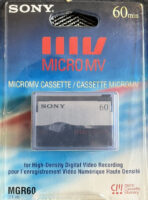There are a lot of good options for secure file saving. These services encrypt your files in transit and during storage. One service even encrypts the files from itself. It’s called Firefox Send. They can’t reveal the files to law enforcement or any other agency. The other services keep the right to access your data if compelled by law or if required to manage the cloud services themselves. For any of the services, it’s important to closely guard the sharing links. These links work like decryption keys and provide access to your files.
Firefox Send
Mozilla’s Firefox Send is incredibly easy to use. Click. Send. And it doesn’t require the Firefox browser, but you can use that if you choose. Share files up to a total size of 2.5 terabytes, free of charge. Firefox Send includes some helpful options. The download links can be set to expire. You can add more security by using a password. No sign up or software is needed. Drag and drop. You’re done.
Dropbox
I’ve been using Dropbox for over 10 years and never had an issue. Dropbox gives you 2 GB of free cloud storage. Or for $12/month you can have 2TB of cloud storage. It takes a couple more steps. Upload your file then notify your recipient. Dropbox keeps your files and folders synced between your laptop, phone or other devices and the cloud. The people you are sharing with don’t need a Dropbox account. There is a sharing tool you can choose to use called Dropbox Transfer which shows a log of how many times your files have been downloaded. You can protect files or folders.
WeTransfer
WeTransfer is another very quick transfer service. Click their site, choose your file, enter the email address and boom. You’re done. I’ve used this for my video transfer clients because it is so simple. Free users can send up to the 2 GB limit. No registration required. Or for $12/month pro users can share up to 20 GB of files at once. Pro accounts also get 1 TB of permanent storage in the cloud.
Google Drive
Google gives you 15 GB of cloud storage for free. This includes Google Drive, Gmail, and Google Photos. Or for $2 a month you can have 100 GB of storage. You can generate links to share files or folders from the web or from the Google Drive mobile apps. Recipients do not need to have a Google account. Google Drive is best for working with other documents or files. It’s not ideal for file sharing because you can’t set passwords or expirations.
OneDrive
OneDrive from Microsoft gives you 5 GB of cloud storage for free. Or for $2/month you can store 100 GB of storage. For $7 month you get 1 TB of space in the cloud and they will throw in Office 365. One Drive is built into Windows. If you are on a paid plan, any file or folder you have synced in your OneDrive account can also be shared with other people, via a link. You can set expire dates and add password protection. OneDrive makes the most sense if you use MS Office a lot. You can work with others on Office files in real time.
SendAnywhere
SendAnywhere is simple. Open the site, click the red plus icon, then a file using a unique link or a six-digit code. If you choose the six-digit code, you must send it to your recipient within ten minutes. There is no limit on file sizes. But if you use the link method, the file size is limited to 10GB. OR sign up for $5/month and file size limit is 50GB.
iCloud
Apple’s cloud storage service is built into every Apple device. From there it’s an easy way to share files from the web or an Apple device. Files can be set to be read-only or editable. But there is no expiration date or password. If you have an Apple ID, you get 5 GB of free iCloud storage. Or pay $2/month for 50 GB of storage. Secure File Saving with ICloud is best if you and your contacts all use Apple hardware.






Recent Comments